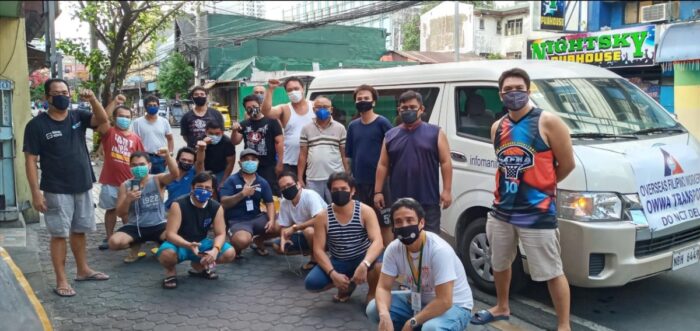The Mission to Seafarers is supporting the Government of the Philippines with the transfer of seafarers, who have completed their quarantine, back home to their local communities, during Manila lockdown.
With the city of Manila adhering to curfews, checkpoints and 14-day mandatory quarantine, seafarers are left in isolation, without transport options to their local villages and paying for rented dormitories. Additionally, many seafarers cannot disembark vessels, with 18 cruise ships and 7,000 seafarers waiting to disembark in Manila bay.
The Mission to Seafarers, working closely in partnership with local partners including ISWAN and several local government ministries (OWWA and MARINA), has launched a COVID-19 Transport Response Project (CTRP) to provide transport to vulnerable seafarers and their families in Manila and local municipalities most affected by the COVID-19 lockdown.
It will also provide essential supplies including food and water to seafarers and families stranded in greater Manila.
The project involves using a minibus and transport staff to transfer seafarers after their mandatory quarantine from the city of Manila to transport hubs outside the city, from where they can then reach their home towns and villages. The minibus has been modified to COVID-19 safety guidelines with plastic sheeting and screens, and goes through a strict cleaning process during each rotation of transportation.
The Revd Canon Andrew Wright, Secretary General for The Mission to Seafarers, commented:
Since April 1st, we have provided food and water to 395 people and delivered essential items to three quarantine centres, two family homes and fifteen seafarer dormitories. As the lockdown continues, and unemployment is expected to rise, we anticipate this food insecurity to increase and will continue to do as much as we can to support the seafarers and their families
The project has involved huge preparation and dedication to obtain the necessary PPE, permits and adjustment to the bus to ensure safety to everyone involved.
The bus can complete three rotations of transport a day, with extensive cleaning between each shift. In addition to transporting seafarers, the staff are also providing essential items like food and water to seafarers and seafaring families suffering from financial insecurity due to lockdown restrictions.






























































